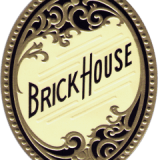Cigar humidors are the perfect way to store and protect your cigars from damage due to fluctuations in temperature and humidity. They also add a unique touch of class to any room, providing an elegant home for your cigars. Whether you’re a seasoned cigar aficionado or just getting started, understanding how to build your own cigar humidor is essential if you want to keep your cigars fresh and flavorful.
Contents:
Building a cigar humidor requires knowledge of materials, construction techniques, design principles, and more. It’s not something that can be done overnight – it takes time and effort to ensure that the finished product meets all the necessary requirements for keeping your cigars at optimal condition. But with the right tools and information at hand, anyone can unlock the secrets of building their own custom-made cigar humidor.
The key element when constructing a cigar humidor is selecting the right materials; from wood type and thickness to sealants used in assembly – each choice has an impact on how well the box will perform its job over time. There are several components that need consideration during construction such as internal shelving systems for different sizes of cigars, additional storage areas for accessories like cutters or lighters as well as air circulation devices designed specifically for this purpose. One must factor in aesthetics by considering finishes like veneers or lacquers which provide various color options while protecting the interior from moisture damage caused by frequent handling of cigars within confined spaces such as desktop units or walk-in closets depending on what size best suits individual needs.
By taking into account these important elements before starting out on building their own personalised cigar humidor project – both novices and experienced enthusiasts alike can enjoy years of storing their prized smokes securely while having an eye catching display piece at home or office that reflects one’s passion for fine tobacco products.
A Beginner’s Guide to Humidors
If you are a beginner to the cigar-smoking world and want to build your own humidor, there are certain aspects you must consider. The first is what type of wood you will use. It’s important that you choose a hardwood with low moisture content, such as Spanish cedar or Honduran mahogany, so it won’t absorb too much humidity. You should also select an interior lining material that has good insulation properties. A popular choice for this is Spanish cedar which can hold up to 70% relative humidity without warping or cracking.
When constructing your humidor, it’s important to seal all surfaces inside and out with polyurethane varnish or epoxy resin paint in order to create an airtight seal and prevent any potential water leakage from entering the box and damaging your cigars. It’s important that you make sure the lid fits tightly so no outside air gets in when closed. Attach hygrometers inside the humidor for accurate readings of both temperature and humidity levels so you know when adjustments need to be made accordingly in order to ensure optimal storage conditions for your cigars.
Once complete, store your humidor in a cool place away from direct sunlight or heat sources such as radiators or fireplaces as extreme temperatures can damage its internal structure over time. If done correctly following these steps then congratulations. Your cigar collection now has its own custom home!
Exploring the Materials Used
When it comes to constructing a cigar humidor, there are several materials that need to be taken into consideration. Wood is the most popular option due to its durability and aesthetic appeal. Many opt for exotic woods such as Spanish cedar or Honduran mahogany for their unique grain patterns and ability to absorb moisture. Other woods, such as maple or oak, can also provide a nice finish but may not offer the same level of protection against humidity fluctuations.
Metal is another material that can be used in cigar humidors, though it typically serves more of an ornamental purpose than structural support. Brass is often used on lids and frames for added security, while stainless steel offers additional corrosion resistance in high-humidity environments. It’s important to note that metal components should only make up a small portion of the total construction; too much metal could interfere with temperature control inside the humidor itself.
Glass is commonly employed for viewing windows and doors in order to show off one’s collection without having to open the lid every time. While this allows for easy access and a pleasing display, it also presents certain challenges when it comes to maintaining proper humidity levels within the box due to its lack of insulation properties compared with wood or metal surfaces. As such, careful attention must be paid when selecting glass panels so they won’t impede your desired environment inside your custom-built cigar humidor.
Understanding the Science Behind It
Humidors are a great way to store cigars, allowing them to age and mature while keeping them in perfect condition. But understanding the science behind building your own cigar humidor can be tricky. Knowing how much humidity is needed, what materials to use, and how it should all be assembled can make or break the success of your humidor.
The most important factor when it comes to a successful cigar humidor is maintaining an ideal humidity level inside – typically between 65% and 70%. This is done by using a hygrometer which measures the relative humidity levels within the box and helps keep things stable. You’ll also need to make sure that there’s adequate ventilation for air circulation – this will help maintain even temperatures throughout the interior.
You’ll need to select quality material for constructing your humidor; wood such as Spanish cedar works best as it has natural oils that help preserve cigars over time. Making sure everything fits together snugly with good seals will ensure no moisture escapes from inside and maintains optimal conditions for aging cigars. With careful consideration of these elements you’ll have an effective homemade cigar humidor that keeps your collection in prime condition.
Getting Started: The Basics
Starting out on the journey to build your own cigar humidor can be a daunting task, but it doesn’t have to be. There are a few basic components and techniques that you’ll need to know before you begin. Knowing these basics will ensure that your humidor is built properly and will keep your cigars in optimal condition for years to come.
The first step in creating a custom cigar humidor is selecting the right materials. You’ll want something sturdy yet lightweight, such as mahogany or cedar wood. A sealant like polyurethane should also be used to protect against moisture damage from any spills or leaks over time. Be sure to select high-quality hardware for the hinges and locks; this will help keep humidity levels consistent inside the box.
Once you’ve gathered all of your supplies, it’s time to assemble the box itself. Measure twice and cut once. Make sure each piece fits together snugly; gaps or cracks between pieces can lead to air leakage and an uneven distribution of humidity inside the box which could compromise its function over time. Finishing touches such as sanding, staining, and varnish may also be necessary depending on how intricate you’d like your design to be – don’t forget about adding ventilation holes if desired!
With these simple steps under your belt, you’re ready to start building your very own cigar humidor. With patience and attention-to-detail, soon enough you’ll have a beautiful storage solution that keeps cigars fresh and flavorful for many years down the road.
Designing Your Own Unique Model
When it comes to building a cigar humidor, many aficionados opt for a custom-built model in order to ensure that their cigars are stored in ideal conditions. Designing your own unique model can be incredibly rewarding and is an excellent way of getting creative with the craftsmanship involved.
The first step is to decide on the size and shape of the humidor you wish to build. Most commonly these boxes are square or rectangular, but depending on your skill level and materials available there may be other shapes you could create as well. If you have limited tools then larger designs may not be possible, however if you have access to a workshop then more complex models such as octagons or even pyramids are viable options too. Consider how much storage space you will need – some people only require enough room for 20 cigars while others may want room for hundreds.
Once the basics of design have been decided upon it’s time to select materials for construction. You’ll want something sturdy yet lightweight so mahogany or cedar wood makes an excellent choice – both provide optimal humidity regulation whilst being relatively simple to work with too. Consider adding external features such as brass hinges and leather handles which can make all the difference when it comes to aesthetics – ensuring that your unique creation turns heads wherever it goes.
Where to Find Quality Cigar Accessories
Finding quality cigar accessories is an essential part of constructing a high-end humidor. Whether you are building your own from scratch or simply upgrading existing equipment, obtaining the right tools and materials can be difficult. It’s important to shop around for items that not only fit your needs but also meet your standards for craftsmanship and durability.
There are several sources for cigar humidor supplies, both online and in-person. Local tobacco stores may have a selection of humidors as well as accessories like trays, dividers, locksets, hinges and more. However, they may not carry all the necessary components or specialized products needed to build an exquisite storage unit tailored to individual tastes. For this reason it is often beneficial to search the internet for vendors who specialize in producing custom pieces made with exotic woods and other premium materials.
Some hobbyists prefer to source their parts through private artisans on Etsy or similar platforms. Here one can find handmade creations ranging from functional boxes built with rare wood species to ornate designs featuring intricate carvings and unique details that truly make them stand out from mass produced merchandise found elsewhere. Whichever route you take when shopping for cigar accessories it is important to read reviews and ask questions before purchasing any item so you know exactly what you’re getting into beforehand.
Caring for Your Humidor Over Time
With proper maintenance, your cigar humidor will stay in excellent condition for years to come. To ensure that your investment is protected, it’s important to practice good hygiene and routine upkeep of your humidor. The most important thing to remember when caring for a humidor is to keep the humidity levels consistent; this can be done by regularly checking the hygrometer and replenishing moisture as needed with a propylene glycol solution or distilled water. You should wipe down the interior of your humidor every couple of weeks with a damp cloth to remove any dust particles that could damage cigars over time.
If possible, store all of your cigars in individual boxes or bags so they don’t rub against each other while inside the humidor. Avoid filling up the space too much since overcrowding can lead to inconsistent humidity levels which could dry out some cigars while leaving others overly moistened. Don’t forget about cleaning out old sticks periodically; this will prevent mold from forming on older cigars which may spread throughout other ones stored nearby.
Unlock the Mysteries of Crafting a Humidor
Crafting a humidor can be an intimidating prospect for even the most experienced of cigar aficionados. With all the intricacies involved, it’s no wonder that many don’t attempt to take on this project. But with a little bit of knowledge and the right tools, constructing your own personal cigar storage space can become an enjoyable and rewarding experience.
Before beginning, it is important to understand some basic principles about humidity control in a humidor. Most high-quality wooden boxes will maintain an internal environment of 70% relative humidity when filled with cigars, as long as they are kept closed. The key is having enough moisture inside the box to keep up with any external changes in humidity levels or temperature swings from day to night. This can be accomplished by using Spanish cedar lining and sponges soaked in distilled water or propylene glycol solution for maintaining adequate levels of moisture within the box walls.
The construction process itself requires careful attention to detail since each piece must fit perfectly together if you want your humidor to work correctly over time. Making sure each piece is cut properly before assembly is essential because any misalignment could lead to air leakage which would decrease its effectiveness at keeping cigars fresh and flavorful over time. Adding components such as hygrometers and digital controls may require additional expertise but these options can provide more precise climate control if desired by the builder.
With patience and skillful workmanship anyone can unlock the mysteries of crafting their own personalized humidor capable of protecting their prized collection of cigars for years to come.











